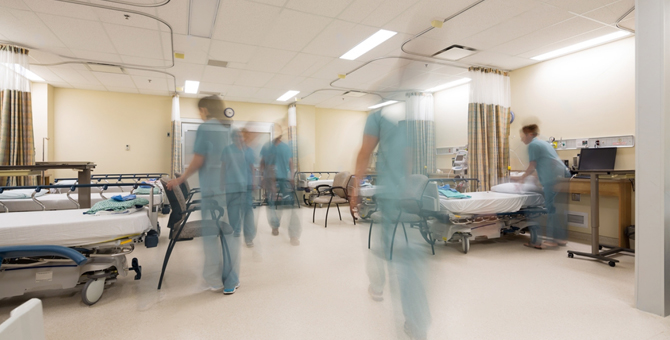The Bryn Mawr Urology Group - A Division of Academic Urology | 919 Conestoga Road Rosemont, Pa 19010
Post Operative Care following daVinci Robotic Surgery and Laparoscopic Surgery

Recovery from Prostate Surgery
How long can I expect to stay in the hospital after the procedure?
Hospital stay for most patients is 1 day.
If I live far away, can I travel after surgery?
Many of our patients come from far away and we can help with numerous logistical issues related to travel, from finding a suitable hotel to arranging medical evaluations pre-operatively. After surgery, we have had patients leaving Bryn Mawr within two days, be it by car or plane to various destinations.
What happens to my medical records and who will take care of me when I get home?
We work with our patients to transmit any and all relevant medical data to their home physicians. For those who chose to stay a while, we provide all follow-up medical care.
Must I return for follow-up care?
We support our patients regardless of where their paths take them. In a practical sense, this means that once a patient has had a Robotic Prostatectomy, we consider him a lifetime patient and are always available. In fact, most of our patients, having come to rely on us during a very trying time in their lives, stay in touch and regularly call and email to update us or ask for our help. While we deliver urological care to all our local patients, there may be no compelling reason for patients to make trips to Bryn Mawr for routine follow-up.
What is the long-term follow-up after Robotic Prostatectomy?
Depending on the pathologist’s report of the Robotic Prostatectomy specimen, a patient may or may not consider additional cancer treatments. In most cases, but not all, the wise course of action is surveillance: periodic measurement of blood PSA, thought to be the most sensitive indicator of cancer recurrence.
After the surgery, when will I be able to resume normal activities?
The major advantages of the surgery is decreased bleeding and decreased pain which results in easier recuperation. Thus, most individuals undergoing this operation will be able to resume normal activities within a few days of surgery. However, each individual heals at his own rate. You should listen to your body, and do what it tells you to do.
After the surgery, when will I have complete urinary control?
Internally, the same operation is done with robotic or conventional surgery. With conventional surgery, 50 percent of patients will have full urinary control – that is, wear no pads – within 3 to 6 months following surgery. Ninety-five percent will achieve this within one year.
What are the risks of Robotic Prostatectomy?
Robotic Prostatectomy is major surgery, done under general anesthesia and carries the same risks of any major operation, including heart attack, stroke, and death. Robotic-assisted laparoscopic prostatectomy is also associated with the specific risks of impotence and incontinence.
What are the side effects of this procedure? What can I expect?
There are several possible side effects after prostatectomy, and many of them will depend on a patient’s individual characteristics. The most common side effects are incontinence, impotence, and discomfort. A bladder catheter will be placed at the time of surgery and is generally removed one week later. Incontinence (leakage of urine) of varying degrees will be initially experienced by most patients, but should improve over time. The majority will be continent within 3-6 months. Impotence (inability to get an erection) can also occur. Risk factors for impotence include age and pre-operative erectile dysfunction. Some patients will be potent within a few weeks after surgery, while others will take up to 2 years to recover potency. Probably the number one complaint after this surgery is pain in the perineum (the area just below the testicles), which can occur in about 10% of patients. This can last for a month or so, but usually responds well to Ibuprofen.
Will this operation render me sterile?
Although undergoing radical prostatectomy will preclude patients from fathering children naturally, pregnancy can be achieved with in-vitro fertilization techniques.
What sexual side effects are possible after robotic and laparoscopic prostate surgery?
Laparoscopic and robotic prostate surgery are highly precise in their ability to spare the nerve bundle responsible for erections.The degree of sexual function after radical prostatectomy is determined by many factors. These include the man’s age, how sexually active he was before the procedure. Most men experience at least temporary erectile problems after a radical prostatectomy.
Will I be able to have normal sexual relations immediately after surgery?
No. Even when the nerves are preserved, it takes time for them to heal and function. With conventional surgery, if you are below 60 years of age and had normal sexual function (Sexual Health Inventory for Men Score of 25), there is an 80 percent chance that you will be able to resume sexual intercourse within 12 months. Statistics indicate that, with robotic surgery, one-third of patients that fit this criteria resume sexual intercourse within 12 weeks of surgery. This is much quicker than with conventional surgery, but we do not anticipate that the long-term outcome will be different. Many individual patient characteristics influence sexual function outcomes.
How long can I expect to be off of work after the procedure?
You will be given two weeks’ disability after the surgery. Long-term disability is not necessary after this procedure since complications are rare. Any further time off will be given only if medically necessary. Additional disability will be determined on a case-by-case basis.
What about Post Operative Pain?
Because dVP performed through very small incisions ,it is associates with little surgical pain. Most patients recover without narcotics. The reduction of pain also permits most patients to get back on their feet within hours of surgery and leave the hospital sooner.
General Information:
- Bladder Spasms: Bladder Spasms are commonly experienced following prostatectomy as a moderate a cramping sensation in the lower abdomen or bladder. These spasms often decrease over time.
- Urinary Catheter: A urinary catheter is used to drain the bladder for approximately 5-7 days following the surgery. It is not uncommon to have blood-tinged urine for a few days to a week.
- Diet: Most patients are able to tolerate clear liquids a few hours after surgery and a regular diet the following day. Liberal fluid intake is encouraged.
- Fatigue: Generalized fatigue is common and should start to subside in a few weeks.
- Constipation: Sluggish bowels for several days to a week following surgery can occur. Suppositories and stool softeners can be used.
- Showering: Wound sites can get wet, but must be patted dry. Showers are permissible but tub baths are not recommended in the first 2 weeks following surgery.
- Activity: Walking is strongly advised. Prolonged sitting or lying in bed should be avoided.. Climbing stairs should be limited. Driving should be avoided for at least 1 week. Most patients return to full activity an average of 2 weeks after surgery.
- Medications: With the exception of aspirin or other blood thinners, usual medications can be resumed following surgery.

